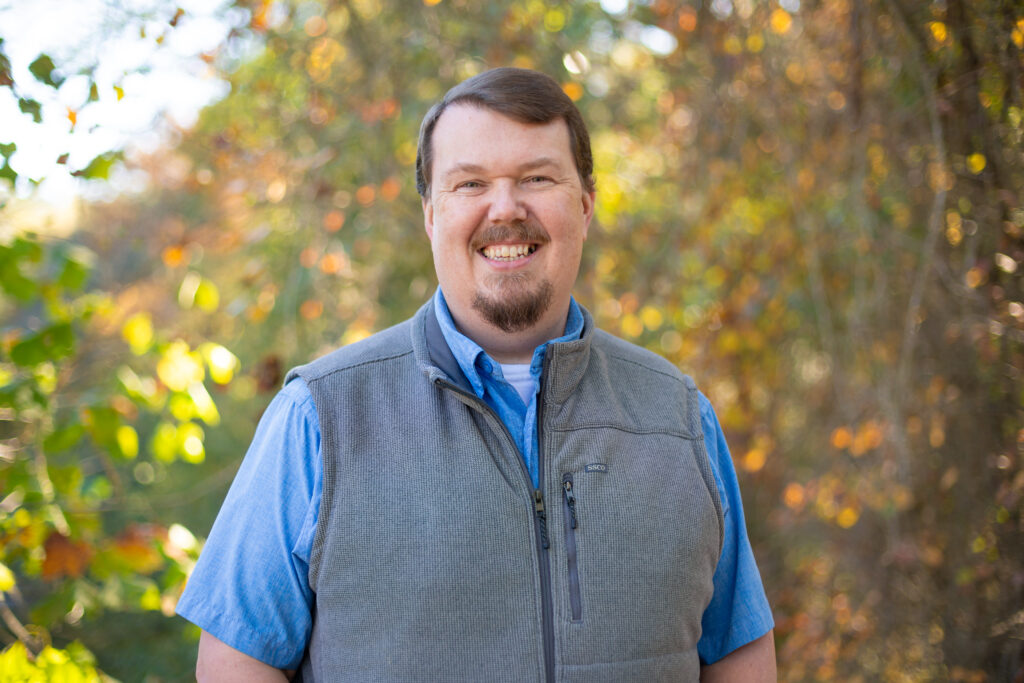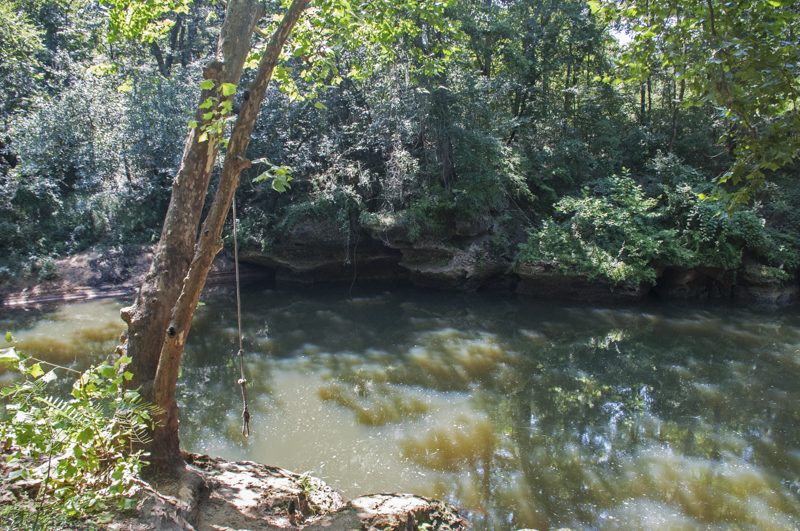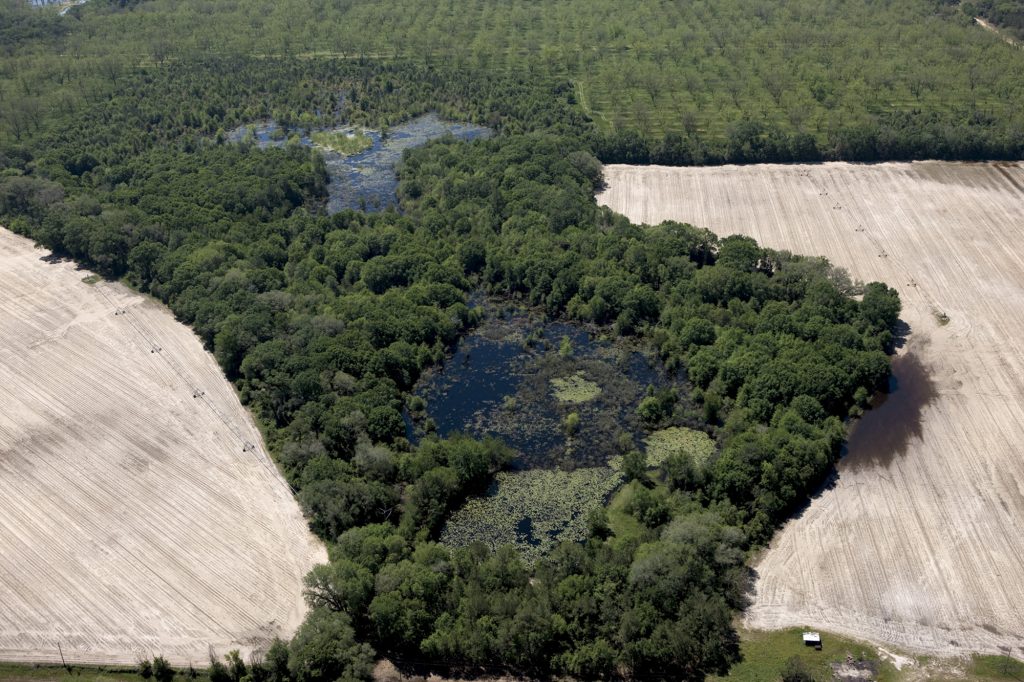Ecohydrology
We study how water moves through, and interacts with, ecosystems. Our research addresses this goal through two complementary questions: 1) how does terrestrial ecosystem structure and function affect water yield, and 2) how does water availability affect ecosystem structure and function? To answer these questions, we take an interdisciplinary approach and have interests in plant physiology, ecosystem ecology, soil science, and hydrogeology. We work across scales from direct measurement of plant abundance to watershed-level modeling. Internal collaborators include aquatic biologists and forest ecologists; and we partner with experts from academia, government agencies, and private organizations. Lastly, our outreach efforts focus on both small and large forest landowners, natural resource managers, and other stakeholders interested in the benefits of longleaf pine for ecosystem services.

New Field Guide Links Local Geologic History to Water Resources
Produced in collaboration with Louisiana State University, “Field Guide to the Hydrogeology of Ichauway” uses easily observed land features as examples where geology and hydrology
A Landscape-Scale Approach to Wetland Mitigation
The lab is excited to partner with Frances O’Donnell and Matt Waters at Auburn University and the Aquatic Biology lab on a new USDA AFRI grant to study the role of
2020 ESA Annual Meeting
Tune-in to our presentations at the virtual Ecological Society Annual meeting: What has the greatest effect on sap-flow: a prescribed fire, a hurricane, or a solar
News

New Field Guide Links Local Geologic History to Water Resources
Produced in collaboration with Louisiana State University, “Field Guide to the Hydrogeology of Ichauway” uses easily observed land features as examples where geology and hydrology come together. As it turns out, the present situation in this region is founded on millions of years of history that shaped the landscape.

A Landscape-Scale Approach to Wetland Mitigation
The lab is excited to partner with Frances O’Donnell and Matt Waters at Auburn University and the Aquatic Biology lab on a new USDA AFRI grant to study the role of isolated wetlands in mitigating non-point source pollution. A detailed project description can be found here.
